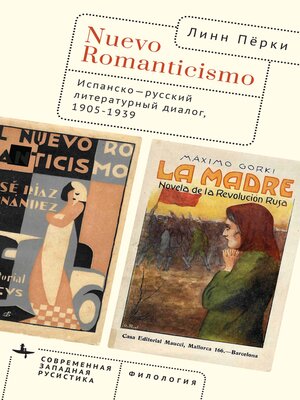Spanish Reception of Russian Narratives
ebook ∣ 1905–1939. Transcultural Dialogues · Contemporary Western Rusistika
By Lynn C. Purkey

Sign up to save your library
With an OverDrive account, you can save your favorite libraries for at-a-glance information about availability. Find out more about OverDrive accounts.
Find this title in Libby, the library reading app by OverDrive.



Search for a digital library with this title
Title found at these libraries:
| Library Name | Distance |
|---|---|
| Loading... |
Drawing upon theories on the novel in Bakhtin's Dialogic Imagination, this book examines Nuevo Romanticismo through the lens of Russo-Soviet littérature engagée. The term Nuevo Romanticismo originated in José Díaz Fernández's eponymous essay and has been applied to a group of writers who exemplified a rehumanization of the field of Spanish cultural production. In contrast with the dehumanized tendencies noted by Ortega y Gasset, writers César Arconada, Ramón J. Sender, and Lusia Carnés combined avant-garde aesthetics and a deep preoccupation with the human condition, creating a model of politically engaged art in part through transcultural dialogues with Russian literary models. This study explores the deep connection between Spanish and Russian narratives immediately before and during the Second Republic, as well as themes as relevant today as nearly a century ago: the ethics of war, the new woman, and responses to machine culture in the modern age. Lynn C. Purkey is an Associate Professor of Spanish at the University of Tennessee at Chattanooga.
RUS
Термин Nuevo Romanticismo («новый романтизм») возник в одноименном эссе Хосе Диаса Фернандеса как обозначение группы писателей, ставшей рупором регуманизации в испанской культуре. Опираясь на теорию романа, представленную в работах Бахтина, Линн Пёрки рассматривает Nuevo Romanticismo сквозь призму русской и советской литературы. В противовес дегуманизированным тенденциям, отмеченным Ортегой-и-Гассетом в испанской литературе, писатели Сесар Арконада,...







